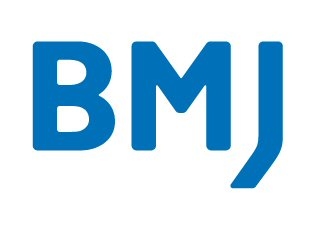Investigation examines bitter dispute over e-cigarettes in the public health community
Date published: 25 June 2015

BMJ is a healthcare knowledge provider that aims to advance healthcare worldwide by sharing knowledge and expertise to improve experiences, outcomes and value
An investigation published by The BMJ reveals how the controversial concept of 'harm reduction', embraced enthusiastically by the tobacco industry, has sharply divided the public health community.
On one side of the increasingly bitter dispute are those who believe it is time to work with the industry in support of products such as e-cigarettes.
Those in the other camp, however, not only contest the claimed public health benefits of the new products but also fear harm reduction is a cynical and superficial smokescreen for an industry that has every intention of maintaining global sales of smoked tobacco for as long as possible.
As cigarettes continue to kill six million people each year, journalist Jonathan Gornall asks who is right?
Simon Capewell, professor of public health and policy at Liverpool University’s Institute of Psychology, Health and Society, and others argue that e-cigarettes help to glamorise and renormalise smoking. Worse, he says, they are being used by the industry “as a trojan horse to get inside ministries of health. They are saying ‘This is all about harm minimisation, we’re part of the solution, we’re no longer the problem.’”
However, Deborah Arnott, chief executive of the UK charity Action on Smoking and Health (ASH), dismisses such fears, saying there is no evidence so far that e-cigarettes are a gateway into smoking for young people. “The risk is that smokers who could potentially use these an an alternative to smoking are being discouraged, and that’s not a good thing,” she argues.
Gornall describes how, in 2014, the tension “boiled over into a pitched battle of words” in the run up to the World Health Organisation’s Framework Convention on Tobacco Control.
Some 56 specialists in nicotine science and public health policy wrote to Margaret Chan, director general of WHO, urging her to support harm reduction and insisting it was “part of the solution, not part of the problem.” But 129 opposing experts swiftly responded, warning WHO and other public bodies not to “buy into the tobacco industry’s well-documented strategy of presenting itself as a partner.”
One of the organisers of the Chan letter was Gerry Stimson, a former director at Imperial College London and a member of the group producing NICE guidance on tobacco harm reduction.
Stimson has made no secret of his relations with the tobacco industry and told The BMJ that e-cigarettes and other nicotine delivery systems had “huge potential … to help shift people away from smoking.” But “the quandary for many public health experts … is that the solution might well lie with the much reviled tobacco industry.”
Karl Fagerstrom, a Swedish clinical psychologist who has also accepted industry money, said he considered products such as e-cigarettes could have a role in reducing the harm caused by smoking and accused some in public health of losing sight of the true objective.
Another signatory to the Chan letter was John Britton, an epidemiologist who heads the UK Centre for Tobacco and Alcohol Studies, and also sat on the NICE guideline group. “I’m no apologist for or friend of the tobacco industry,” he told The BMJ, but if an alternative means of delivering nicotine comes along “it’s inconceivable that tobacco companies will not get involved and seek to exploit it, and that’s a risk that has to be managed.”
For Martin McKee, professor of European public health at the London School of Hygiene and Tropical Medicine, there is no doubt that tobacco companies are entering the e-cigarette market “solely so they can say they are part of the solution.” But there was, he said, still no evidence that e-cigarettes were effective in helping people to quit smoking.
British American Tobacco (BAT) is now poised to market Voke, the first licensed medicinal nicotine product from a tobacco company.
ASH has welcomed the decision, saying Voke “… will allow smokers to choose a product which meets the high standards of medicines regulation and could be provided on prescription to help them stop smoking.”
Regardless of their true value in the battle against tobacco harm, and the ferocious row they have triggered in the public health community, are all such products anything other than a sideshow, designed to make the tobacco industry look good as cigarettes continue to kill half the people who use them, asks Gornall?
He notes that while BAT says it is “committed to developing and promoting a range of next generation tobacco and nicotine products,” its 2014 annual report clearly states that tobacco remains “at the core of our business and will continue to provide us with opportunities for growth.”
Do you have a story for us?
Let us know by emailing news@rochdaleonline.co.uk
All contact will be treated in confidence.
Most Viewed News Stories
- 1Royton haulage firm fined after Rochdale dad went to work and didn’t come home
- 2Six men arrested in Rochdale child exploitation investigation
- 3Rochdale church to host Camerados public living room
- 4Suspended council candidate was ‘politically naive’ for appearing in George Galloway video, leader...
- 530 years of the GEM Appeal, a Rochdale-founded charity that has raised millions and changed the...
To contact the Rochdale Online news desk, email news@rochdaleonline.co.uk or visit our news submission page.
To get the latest news on your desktop or mobile, follow Rochdale Online on Twitter and Facebook.


